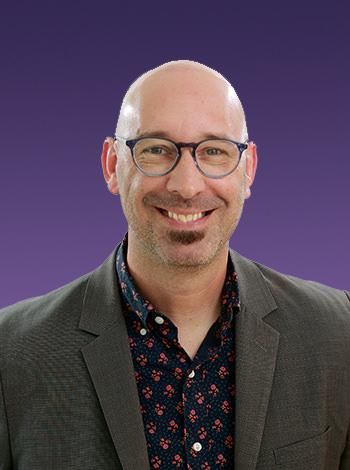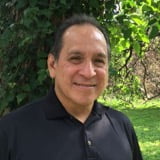Bilingual/Multicultural
Becoming Authors in the Classroom - Celebrating our Language and Culture Stories
Day 1, Session 1 - May 31, 10:50 - 11:50am
Celebrating the wonderful linguistic and cultural diversity that you and your students bring to the classroom. Knowing how we come into spaces helps us relate to others. This session will illustrate how we all have a culture and language story and support participants in getting started in becoming authors in the classroom.
Presenter

Full Bio
The Magic of Insider Autores y Escritores: Youth Story Tellers as Authors in a Rural Mexican Community-Based Summer Program
Day 1, Session 2 - May 31, 1:05 - 2:05pm
This session is about the importance of storytelling on developing literacy. During this session, I will describe a recent study set in the Central highlands of México, where 73 youth, ages 10-17, became authors and writers (autores y escritores) of their own insider stories. I will give examples of how I lead a multinational/multi-institutional research team in training university students from México, the U.S., and Germany on a narrative text structure strategy, that included multimodal representations of text structure (chants, icons, visual text mapping) and in the creation of theme-based (immigration and intercultural competency) wordless picture books for eliciting oracy/literacy development, through story retells. I will explain how during a four-day community-based Summer camp, university students leveraged magic tricks, theme-based storytelling and retelling, and the Embedded Story Structure (ESS) Routine to facilitate the campers’ creation of their own, insider-written, theme-based stories. I will share a list of forty Latinx-authored bilingual children’s books about immigration and intercultural competency, that were also used as exemplars for the campers’ own stories. All 73 campers completed individual, insider-written children’s books. Session participants will read examples of student-authored stories from each theme and get insight into how youth leaned on the ESS Routine for organizing their thoughts and writing their stories, in order to replicate this in their own classrooms. Finally, I will share observational and anecdotal data from students, including students with disabilities, that point to the positive impact of storytelling (oracy) and the ESS Routine on campers’ increased motivation and ability to become autores y escritores.
Presenter
Sponsored by the Center for Public Education and Community Engagement

Local Voices, bilingual books: Panel of local bilingual children’s and young adult book author
Day 2, Session 1 - June 1, 10:50 - 11:50am
What knowledge is overlooked, undervalued, and what experiences do we miss out on when we don’t listen to local voices? Nadie es profeta en su propia tierra, but they are experts! In this session a group of local bilingual children’s and young adult book authors will share their experiences writing and publishing books and how they use them to build biliteracy and bilingual identities in our community.
Presenter

Culturally Relevant Literature for English Language Classrooms
Day 2, Session 2: June 1, 1:05 - 2:05pm
Do you feel like you are behind in catching up with the many good works of literature
being written and published for students that could be used in your teaching with
your English Language students? There are many new books that meaningfully portray
the cultural experiences that are relevant to the diversity of our students. Effective
teachers know how to use good literature to spark the creative imaginations of students
and to connect to their life experiences. They create a love for reading by incorporating
culturally relevant stories into their teaching.
There are books about:
- feeling lonely because the culture is so different,
- immigrating to this country and trying to “fit in,”
- not knowing how to read or speak English,
- celebrating certain holidays; having unique traditions and customs
- historical and important biographical stories
This presentation will address literacy development for emergent ELs, as well as to share many different themes of literature. Effective strategies and activities will be demonstrated for how teachers can use multicultural literature effectively in their classrooms to:
- address the many diverse cultural aspects of students’ lives,
- create enthusiasm for reading,
- integrate content and language learning,
- introduce key vocabulary words,
- develop skills in listening, speaking, reading, and writing, as well as
- share books that can be read aloud to spark the creative imaginations and voices of students.
Intended Audience: EC-6 Dual Language/ESL Teachers
Presenter
